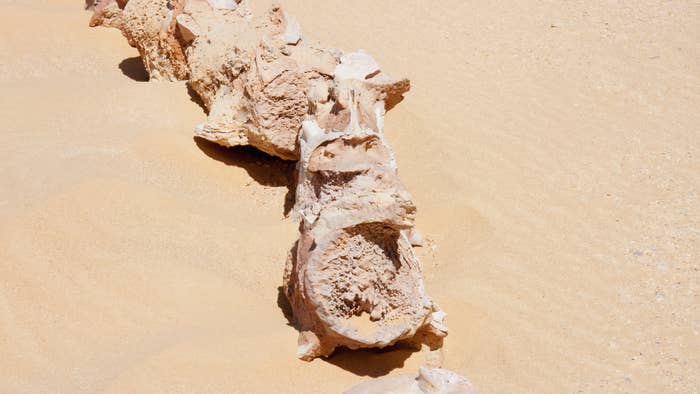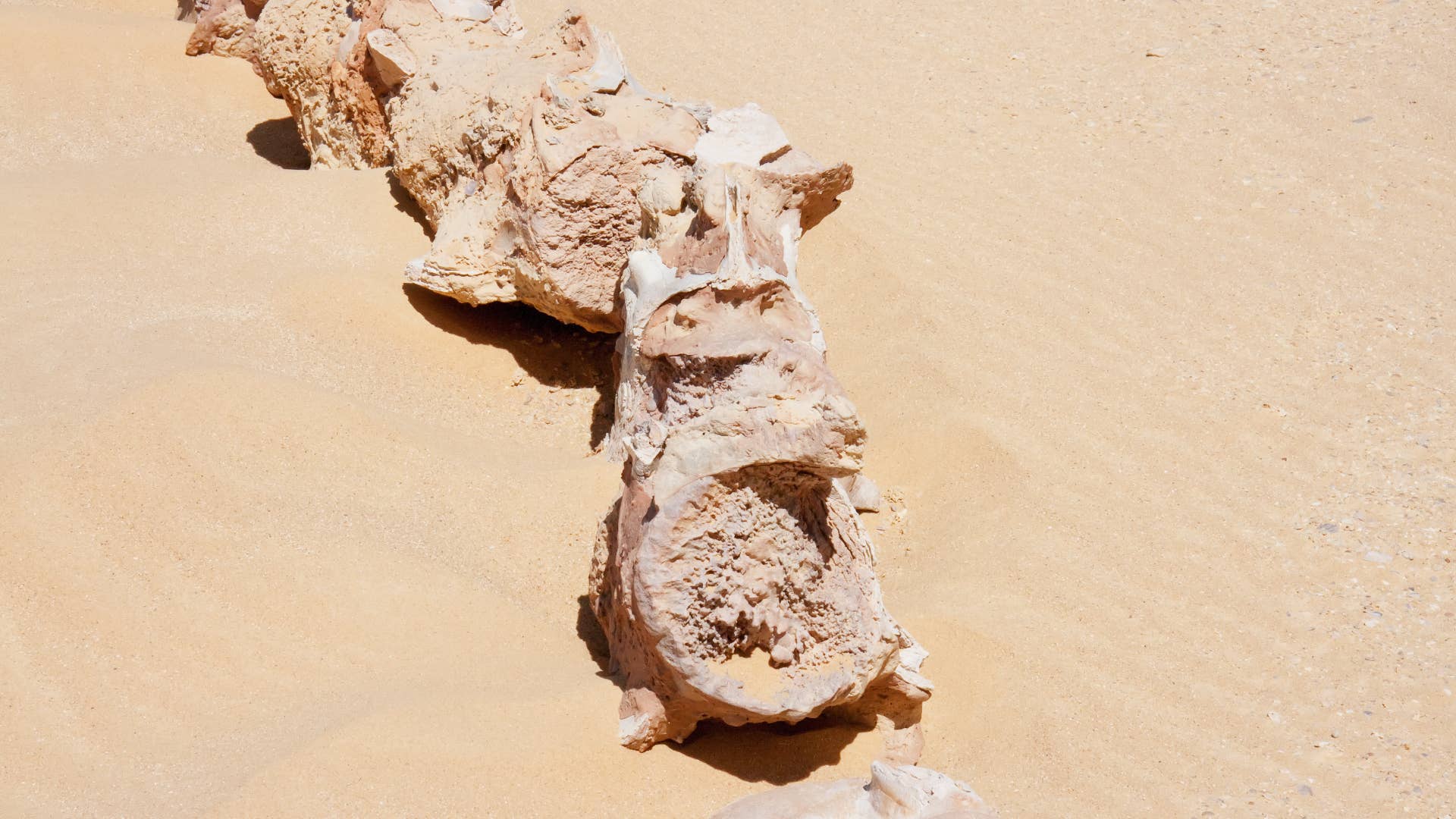
Scientists revealed Wednesday that the fossil from a new amphibious four-legged whale species known as Phiomicetus anubis was discovered in the Fayum Depression of the Western Desert in Egypt, BBC News reports.
Dating back 43 million years, this species was named after the area where the discovery was made and Anubis, the Egyptian jackal-headed god of the dead, because the two share a similar skull structure. It weighed an estimated 1,300 pounds and 10 feet long, and was capable of walking on land and swimming in water.
“Phiomicetus anubis is a key new whale species, and a critical discovery for Egyptian and African palaeontology,” Abdullah Gohar, lead author of the study, told Reuters.
Researchers admit early whale evolution in Africa remains a mystery, and hope that further work in the region will lead to a better understanding of the whale’s evolutionary transition from amphibious to fully aquatic.
While this isn’t the first whale with legs to be discovered, it’s the earliest type of semi-aquatic whale found in Africa. The fossil of a four-legged semi-aquatic whale called the Peregocetus pacificus was found in Peru’s Pacific coast a decade ago. Measuring 13 feet long, this species has been compared to an otter or beaver due to its webbed feet and hooves.

